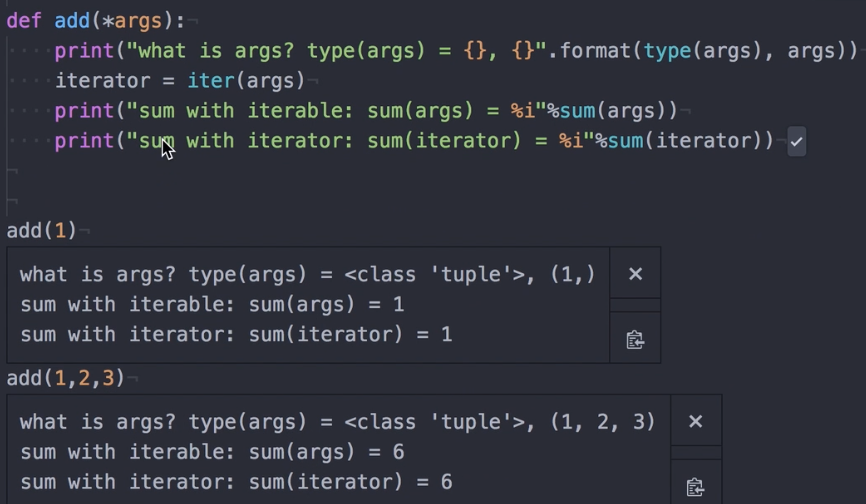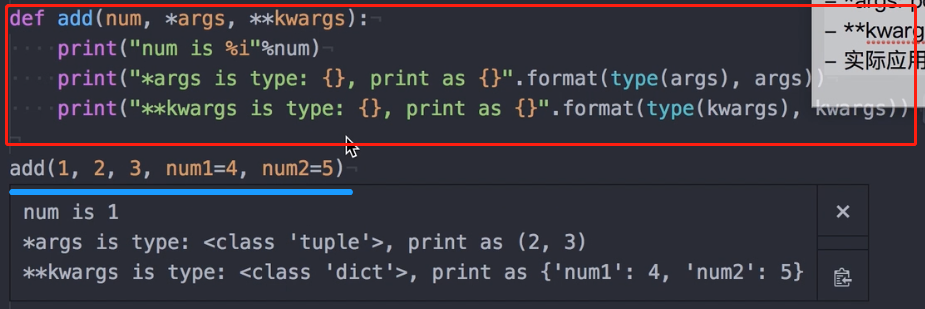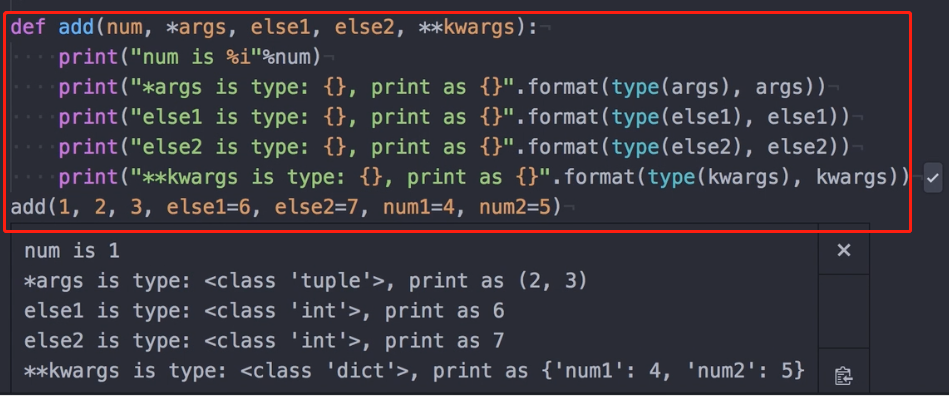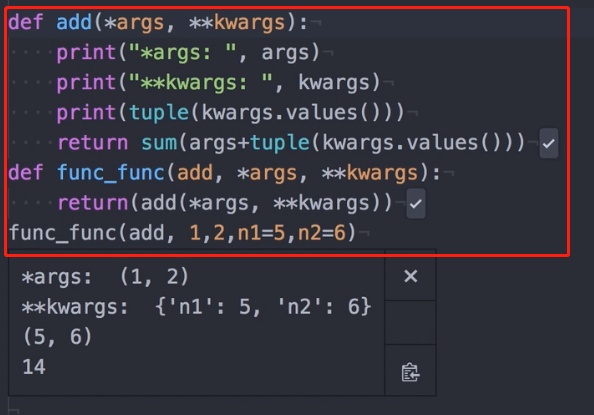 Python基础知识:*args,**args的详细用法
Python基础知识:*args,**args的详细用法
参考:https://blog.csdn.net/qq_29287973/article/details/78040291
*args 不定参数,**kwargs 传入键值对(例如:num1=11,num2=22)












先看示例1:
def test(a,b,c=3,*args): print(a) print(b) print(c) print(args) test(11,22,33,44,55)

1 11 2 22 3 33 4 (44,55)
也就是说args中保存的是没有利用的所有多余参数,保存方式为元组
再看示例2:
def test(a,b,c=3,*args1,**args2): print(a) print(b) print(c) print(args1) print(args2) test(11,22,33,dd=44,ee=55,ff=66)

1 11 2 22 3 33 4 () 5 {'dd':44, 'ee':55, 'ff':66}
即输入多余参数有变量名,就保存在**args中保存,保存方式为字典
再看示例3:
def test(a,b,c=3,*args1,**args2): print(a) print(b) print(c) print(args1) print(args2) test(11,22,33,"aa","bb",dd=44,ee=55,ff=66)

1 11 2 22 3 33 4 ('aa', 'bb') 5 {'dd': 44, 'ee': 55, 'ff': 66}
补充:
import requests response = requests.get('http://httpbin.org/get') print(response.text)

{ "args": {}, "headers": { "Accept": "*/*", "Accept-Encoding": "gzip, deflate", "Connection": "close", "Host": "httpbin.org", "User-Agent": "python-requests/2.18.4" }, "origin": "223.71.166.246", "url": "http://httpbin.org/get" }
带参数的get请求,方式1:
import requests response = requests.get('http://httpbin.org/get?name=xiong&age=25') print(response.text)

{ "args": { "age": "25", "name": "xiong" }, "headers": { "Accept": "*/*", "Accept-Encoding": "gzip, deflate", "Connection": "close", "Host": "httpbin.org", "User-Agent": "python-requests/2.18.4" }, "origin": "223.71.166.246", "url": "http://httpbin.org/get?name=0bug&age=25" }
带参数的get请求,方式2:
params 表示函数的参数是可变个数的
import requests data = { 'name': 'xiong', 'age': 25 } response = requests.get('http://httpbin.org/get', params=data) print(response.text)

{ "args": { "age": "25", "name": "xiong" }, "headers": { "Accept": "*/*", "Accept-Encoding": "gzip, deflate", "Connection": "close", "Host": "httpbin.org", "User-Agent": "python-requests/2.18.4" }, "origin": "223.71.166.246", "url": "http://httpbin.org/get?name=0bug&age=25" }
